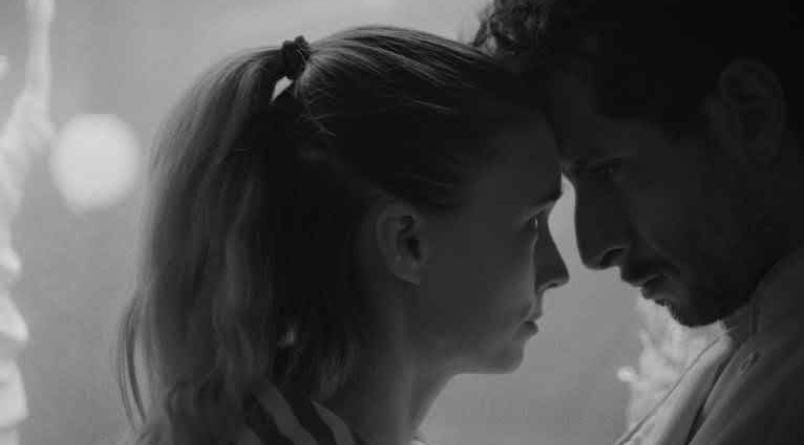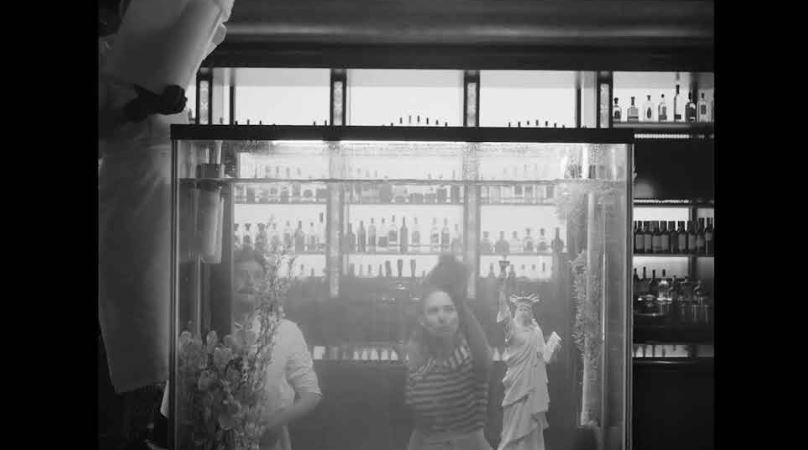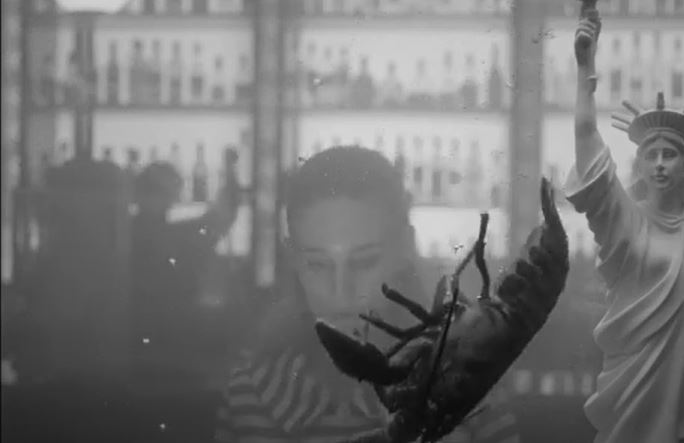Watching the MIFF film La Cocina feels a bit like entering a time warp, but not because the film is set in a recent past of indeterminate vintage. Rather, it’s because the film itself feels like a throwback to the sort of arthouse films that were once plentiful but have worn out their welcome. Alonso Ruizpalacios’ film puts you on notice with its rich black-and-white photography, which previews a sort of pretentiousness that has gone out of fashion. Off-centre shots of characters, close-ups of minute details, constant cigarette smoking, and a wordy and over-determined script – the sort that seems like it was adapted from a play, because it was – complete the film’s series of microaggressions that add up to something almost unbearable.
But how do I really feel?
Thank goodness the actual craft of La Cocina is good, because it subjects its viewers to 139 minutes of increasingly annoying and showy tics. (At least they look nice, is the point.) The film is set entirely within and immediately around a restaurant for tourists in New York’s Times Square, on a single day in which enough things happen to fill up a month in most restaurant kitchens. It’s one of those restaurants that fancies itself to be up-scale, and is supposed to attract a fancier calibre of tourist. Really, though, these yes-cheffing cooks are fooling themselves if they think this is the realisation of their culinary dreams.
La Cocina baits-and-switches us from the start, appearing as though it’s going to follow the story of Estela (Anna Diaz), whose journey into Times Square at the start of the day is the only portion that takes place outside the restaurant and its immediate back alleys. Estela doesn’t speak English but has been told she might find work at this restaurant because she has family ties to Pedro (Raul Briones), a chef on the line who is probably the wrong place to rest your hopes. He’s already on the head chef’s last nerve as he is unable to control his outbursts and other antics, and pulled a knife on another chef just the day before.
Once she’s scored the job though – the result of pretending she is another applicant who was late for her interview – Estela essentially drops out of the story, to the point where any time we check in with her, we almost forget she was the first character we met. The tempestuous relationship between Pedro and server Julia (Rooney Mara) – we have to specify here because Pedro has a tempestuous relationship with almost everybody – becomes the film’s focus. Despite a busy schedule for both of them, Pedro and Julia seem to have a dozen opportunities for quiet moments by a tank of lobsters in the dining room, or in a walk-in refrigerator. See they have a lot to talk about, as Julia is pregnant and she’s not sure if she wants to have it.
The constant cigarette smoking feels like a hopelessly fussy affectation for this film, one of many, though it’s possible that taking place in an era of more permissive indoor smoking can explain it. (Our only indication of the era, from a technological perspective, is that the servers are trying to figure out touch-screen point of sale systems, as though they are brand new.) The point is not that characters smoke, but that Ruizpalacios’ idea of how much they smoke fits perfectly into the laboured sense of coolness that he wants to surround this film. He fancies himself a descendant of Jean-Luc Godard or Jim Jarmusch, but the results just aren’t there, and how hard he’s trying seeps out of every frame.
Really what La Cocina feels most like is Birdman, given that it takes place in just a single location, has a number of long takes, and involves a cross-section of people to whom everything that could possibly be going wrong is going wrong. (A narrative undercurrent is that someone stole $800 from the till the day before, so one manager is interviewing staff throughout the day.) Birdman worked for many people, including this critic, but in the decade since it was released, it has aged quickly and ungracefully, and we likely wouldn’t stand for that crap today.
Exhibit A being La Cocina. There’s even a little dabbling in Birdman’s supernatural components as Ruizpalacios tries to give us a topical tour-de-force in which characters deliver soliloquys about their working conditions, and in one particularly awkward scene, expound on their hopes and dreams. The fact that the play on which it was based, Arnold Wesker’s The Kitchen, is from a whopping 67 years ago may shed some light on why everything that’s going on here feels so old hat.
La Cocina has a number of additional screenings at MIFF, at the Forum in the city on Saturday, August 24th at 4 p.m., as well as screenings elsewhere around the state in such venues as the Theatre Royal in Castlemaine this Saturday (1 p.m.) and the following weekend in Bendigo, Morwell, Geelong and Rosebud. For tickets and more information, go here.


